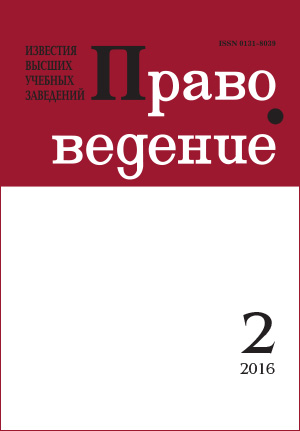Policy and law in philosophic-elitological teaching of Pythagoras
Abstract
The political and legal doctrine of Pythagoras is a poorly studied area of the history of ancient philosophy. The present paper reveals the basic provisions of the legal doctrine of the thinker in the context of his political views. The author focuses on identification of elitological features of the given concept, determination of its epistemological and ethical standards, as well as influence that it had exerted on the further development of philosophical and legal thought. In this political and legal teaching of Pythagoras he appears in a somewhat unusual format as a social scientist. The rules derived by him are still relevant today, thus indicating that he has discovered certain fundamental principles of development of the political and legal scientific thought. In addition, Pythagoras introduces a substantial moral aspect into the law, thus giving a particular meritocratic direction to his political philosophy. He paid special attention on the typology of the political elite dividing it into the legislative and the executive ones. According to the Philosopher, the quality of power directly depends on the quality of its education. Therefore, while training his students he has introduced a set of political and legal knowledge which has been presented in an aphoristic form for better memorization. The relation between the elite and the masses is a common thread of all his social doctrine. An elite person differs from a mass person especially in terms of the quality of his knowledge. This qualitative superiority makes him a professional at the same time defining the quality of his power. Practical advice given by Pythagoras to the elite indicates his deep professional understanding of politics and law, proves his knowledge of the social life and its adequate assessment. Certain provisions of the Philosopher are still relevant today and can be transferred to the current practice.
Keywords:
politics, law, statute, elite, philosophy, ethics, wisdom, justice
Downloads
References
Downloads
Published
How to Cite
Issue
Section
License
Articles of "Pravovedenie" are open access distributed under the terms of the License Agreement with Saint Petersburg State University, which permits to the authors unrestricted distribution and self-archiving free of charge.




